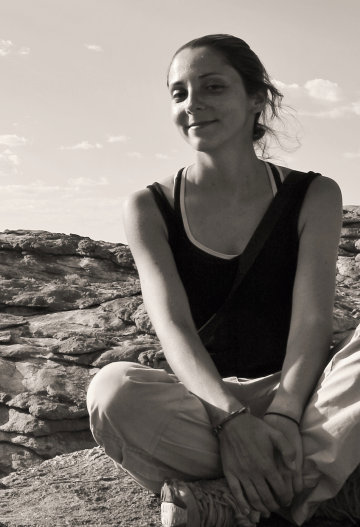
Archaeological Micromorphology and Biomarker Research Lab, Instituto Universitario de Bio-Orgánica Antonio González (IUBO)
Avenida Astrofísico Francisco Sánchez, 38206, La Laguna, Tenerife, Spain
My research is focused on the socio-ecological interaction between human societies and their environment using a high resolution multi-technique methodological approach. My PhD project integrates micromorphology, stable isotope analysis and Fourier transform infrared spectroscopy (FTIR) to characterise (1) carnivore and herbivore coprolites at a micro-scale level and (2) sediments from rich organic anthropogenic layers to identify organic compounds within the soil.
I have an special interest in taphonomy of stabling floors and coprolites, as these processes helps us to understand how the organic matter content decays and transform in the soil during time. Therefore, we can use this information as a potential biomarker for discerning palimpsests. Moreover, the long-term dynamics of pastoral habitat adaptations and multi-resource economic strategies are crucial to understand living conditions, mobility, seasonality and diet of both humans and animals in Pre and Protohistory. To study this relationships, my research also uses a geo-ethnoarchaeological approach that aims at providing a robust methodology for understanding agro-pastoral and fully nomadic economies and its persistence during time in complex and very different archaeological (and ecological) settings. I mainly focus on Eastern Mongolia herding campsites, as this case study offers an exceptional ethnographical proof-of-concept to investigate the seasonal usage and occupation of pastoral camps, which is an important temporal variable in mobile societies, difficult to detect in the archaeological record.